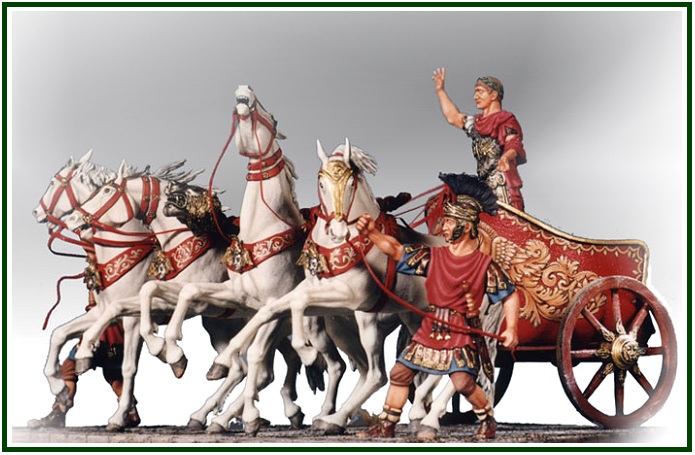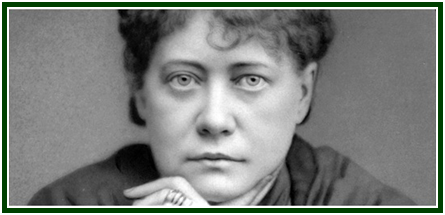the Emperor Arrives at the Capital

According to the Yoga Sutras of Patañjali, one of the positive qualities we must develop along the path to wisdom is Asteya, abstention from stealing. The idea is more complicated than it seems, because there are subconscious forms of theft.
Some sectors of the lower self, for example, are always ready to steal the place of the higher self or immortal soul.
How many times, despite its enormous imperfections, does one’s lower personality try to attribute to itself the characteristics of the immortal soul and considers itself most spiritual if not infallible and worthy of everyone’s applause?
It is said that once upon a time, during the Roman Empire, the emperor himself arrived back at the capital city after a great military victory. It was morning. The day was sunny. Standing on his quadriga - war chariot pulled by four horses - the emperor smiled and saluted the people gathered to applaud him in that moment of glory. But to whom did the glory belong?
A piece of manure, produced by the horses, was stuck to the outside of the car of the Emperor. Firmly accommodated in the organic substance, two flies chatted in all comfort while enjoying their breakfast and experiencing the moment of arrival in Rome.
While pointing to the applauding crowd, the older fly said to his colleague:
- Do you see how popular I am in this place?
And he interrupted the meal, and started greeting the crowd with his front paws. At the same time, he looked at his companion with an eloquent attitude, as if he wanted to say:
- Look carefully - it’s a historic moment.
What is the theosophical lesson from such an episode?
Often, this is the behavior of the lower self, in the inner world of those who seek for eternal wisdom. Each time the pilgrim achieves a victory on the path of self-improvement, his lower self gets ready to receive the applause, while saying to itself:
“This time I was truly magnificent.”
The warrior-emperor in the story represents that part of the lower self that fights and wins battles in the search for truth. It destroys the grosser aspects of ignorance and expands the learner’s area of self-knowledge. The two flies, traveling in the lower outer part of the car, represent the backward aspects of the lower self. The insects are slaves to comfort. They make a feast of unhealthy things. And in order to overcome boredom, they cultivate vainglory based on fantasy.
Each human being has within himself a warrior-emperor and a fly, or two. It is necessary to renounce the smelling meal enjoyed by the fly, to tread the narrow steep path of a self-responsible warrior.
It is the combination of courage and humbleness that produces victory. It is easy to have courage if there is no humility. And anyone can be humble if there is no courage. But the merit lies in combining these two qualities and managing them based on discernment and common sense.
To do this, one must understand a few basic facts:
* The lower-self can only live for a short time, often less than one century.
* It is imperfect.
* In addition to being short-lived, the lower self has significant learning difficulties and, like certain domestic animals, parts of it may become stubbornly self-opinionated.
But the lower self can also work loyally for That which is permanent.
Despite the difficulties, it is able, little by little, to learn. It is within its power to fight and correct its own mistakes, but it cannot eliminate the mistakes of others. By persevering in the right direction, it can liberate itself from a large amount of ignorance.
000
The article “A Lesson From Ancient Rome” is available on the websites of the Independent Lodge of Theosophists since 27 June 2025. It was first published at the April 2024 edition of “The Aquarian Theosophist”, pp. 1-3.
000
Read more:
000

Helena Blavatsky (photo) wrote these words: “Deserve, then desire”.
000
